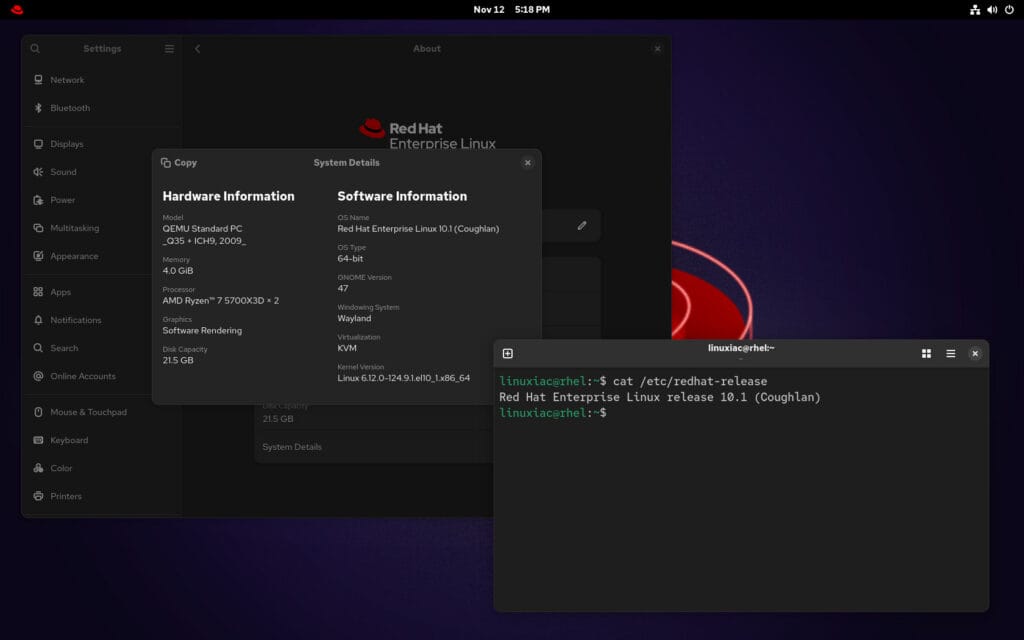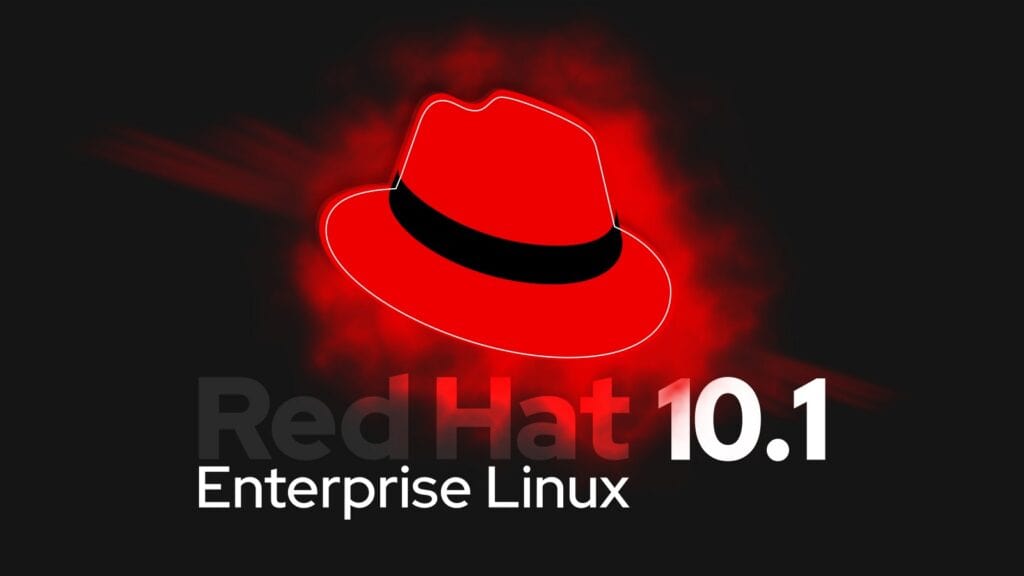Powered by Linux kernel 6.12 LTS, Red Hat has released RHEL 10.1 (Coughlan) as the first update in the 10.x series, focused on the platform’s AI capabilities and security, for business needs and those relying on enterprise solutions.
The headline feature is the arrival of an offline, locally available command-line AI assistant, now in developer preview for organizations using Red Hat Satellite.
It mirrors the capabilities of the existing RHEL command-line assistant but without requiring any external network access, leveraging decades of Red Hat expertise to address questions about installation, troubleshooting, and general system administration.
The main selling point here is security. By keeping all inference local, it seamlessly integrates into the workflows of security-sensitive sectors, such as finance, government, and industrial control.
Moreover, the release also brings a major improvement to both the online and offline versions of the assistant: its context window increases from 2KB to 32KB, allowing it to digest longer logs, larger command pipelines, and more complex administrative tasks.
RHEL 10.1 also makes AI-related hardware easier to deploy. For the first time, vendor-verified GPU, TPU, and NPU drivers are available directly through the RHEL Extensions and Supplementary repositories. This provides an authoritative, trusted source for rapidly evolving AI accelerator stacks. Initial offerings include:
- NVIDIA: OpenRM kernel mode driver and CUDA toolkit
- AMD: amdgpu kernel mode driver and ROCm
- Intel: NPU kernel mode driver
Another notable enhancement in RHEL 10.1 is the introduction of systemd soft-reboots for image mode systems. Instead of performing a full system restart, administrators can refresh userspace components—including applications, libraries, and configurations—without interrupting the kernel.
The result is faster patching, shorter maintenance windows, and more predictable uptime.

Alongside this, RHEL 10.1 introduces reproducible builds for container tools in image mode. Container images created from identical inputs now match byte for byte, including their metadata.
On the developer front, the release ships updated versions of key languages, runtimes, and toolsets:
- Go 1.24 brings new standard library packages, generic type aliases, and runtime optimizations.
- LLVM 20 adds expanded hardware support, library improvements, and a modernized JIT linker.
- Rust 1.88 delivers the stabilized Rust 2024 edition, along with safe access to select CPU features.
- GCC 15 introduces default runtime assertions for unoptimized C++ builds and previews C++ standard library modules.
- .NET 10 improves runtime performance, expands cryptography and numerics APIs, and strengthens container support.
- Valkey 8 adds smarter multicore processing, better cluster scaling, and more detailed metrics.
- Node.js 24 updates the V8 engine, promotes its permission model to stable, and adds URLPattern globally.
Lastly, RHEL 10.1 advances the platform’s post-quantum strategy by extending PQC algorithms to TLS, improving protection for data in transit. Additionally, the update enhances TPM support within the OpenTelemetry Collector across major cloud providers, providing hardware-backed safeguards for cryptographic keys and attestation data.
For more information, see the announcement or visit the release notes.
